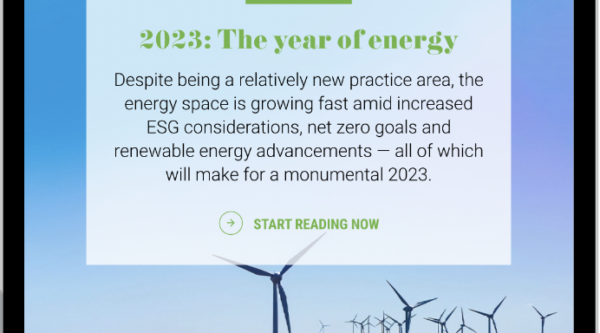
Momentum’s head of engineering Blair Dods offers a technical perspective towards business opportunity, arguing that the smart application and execution of current tech is critical for media organisations – however you have got to keep a keen eye on the future.
Not another ‘tech trends for 2021’ post I hear you scream?
Traditionally, these annual predictions are notoriously over optimistic, with a variety of factors needing to line up before the ideas truly become mainstream.
Case in point: my first ‘real’ job was working for a mobile internet business in Berlin, Germany way back in 1999. We were the first service that allowed you to access all your email/calendar/task information on your phone while having it synced with your office desktop.
That year was deemed to be the year of mobile internet, as was each year following until 2007 when the iPhone launched and annihilated several competitors in the space. Even then, it wasn’t until a year later with the launch of the App Store that it truly became an omnipresent device/platform and mobile started its gradual takeover of the PC world.
2020 was perhaps one of the only times in history where change has accelerated at such a pace due to COVID and I don’t believe we will see the same quantum leaps in 2021. In terms of how tech affects the way we operate, we see it more as a year of democratisation of tech that was only previously available to major companies and newly minted unicorns. This will result in more mainstream availability of this tech to a far larger pool of businesses.
At Momentum we’ve set ourselves an ambitious year of growth despite some of the headwinds we’re experienced in a number of our markets. And our tech backbone will be a major driver to support this.
The following highlights the major factors that will influence our tech strategy for the year:
Platform delivery
At Momentum, our technology stack is 100 per cent geared towards ensuring we are keeping our users better informed through connecting them to the right information, at the right time, on the device that works best for them in the most efficient way possible.
We have moved on from the days where digital content was only consumed through desktop, and then mobile, and voice activated search as devices become far more prevalent and sophisticated.
Whether it is through a connected speaker at home, using voice-based assistants on your watch, to interacting with your car’s digital system, delivering content through non text entry platforms is fast accelerating.
Consider these stats:
- 20 per cent of all searches are now via voice.
- 40 per cent of all internet users in the US used voice in the last year.
- 72 per cent of people who own voice-activated speakers say that their devices are used as part of their daily routines
(Google/Peerless Insights)
Ultimately, our success comes down to providing the best overall customer experience possible on the user side (and effectively monetising it on the commercial side), so the platforms we use are critical to achieving this.
So what does all this mean?
We need to future proof our distribution and a core part of this involves a comprehensive review of our CMS. Essentially, in order to better capitalise on current user trends and future proof our delivery platforms, we need to rethink our traditional CMS model.
Headless CMS frameworks have been bubbling away on the fringe for the past couple of years, but 2021 will see more companies invest the time and take the leap.
One of the core benefits of a headless CMS for a company such as Momentum is that it allows us to offer omnichannel experiences from a centralised content repository and easily reuse content, while allowing us to support future technologies that have not entered the mainstream yet.
The COVID factor
While our corner of the world appears to be getting COVID under control, it remains an ongoing influence on how we work and where people consume content. For Momentum, this will impact us in several ways:
- Increased use of voice-based searches as a result of working from home (see previous section). While voice activated search and interactions don’t work so well in a crowded office environment, it is a far more logical use case while working from home so 2021 could see voice overtake text entry in terms of search preference.
- Hybrid events. From purely physical events pre-COVID to purely digital during the heights of the pandemic, we are morphing more to hybrid events. This requires rethinking the delivery of events and reaching a happy medium between attending in person and viewing remotely. During the pandemic’s early months, more than half of the participants said they wanted their virtual experiences to feel more “human”, so we continue to experiment with different formats to satisfy this. Eventually, hologram-based tech should bridge the divide viewing remotely and attending in person, but we are a few years away yet!
Tech advancements
5G is one of the more high-profile recent tech launches and has gained plenty of PR, but mostly for the wrong reasons (Google ‘5G conspiracy theories’ if you want to go down the rabbit hole).
As we see the 5G networks expand along with a proliferation of new connected devices including wearables, content will permeate even further into our lives. The hyper personalisation of content will be a necessity to punch through the overwhelming content overload we will all be subjected to. This will also place more weight on a seamless and highly engaging UX, with an emphasis on visual consistency through channels.
The benefits of 5G will also flow through to more simple pleasures such as the streaming of our events and master classes in 4K.
Enhanced business intelligence
Since the digital age arrived, we have all been generating massive streams of data through all aspects of business. The problem in the past has been to try and capture that data and then use it for augmented decision making.
New tools and cheaper data storage and processing are resulting in enhanced business intelligence becoming more accessible, allowing businesses to gain insights from their data that previously was cost prohibitive. At Momentum, this allows us to:
- Serve more relevant content to users.
- Drive improved product offerings, delivering more value to users (from events through to new media brands).
- Assist our sales team in creating better solutions so our partners enjoy more success.
Cyber security
Security and user data are another major theme that overlaps several projects we will be looking at for 2021.
Is cyber security really that much of an issue given today’s robust tech platforms and 2FA becoming a requirement for access to more and more services? The answer is a resounding yes.
While it seems dramatic to suggest that cyber crime can be more powerful than traditional armed warfare, it has been recently stated that international crime syndicates now make more money from cyber crime than they do from the drug trade. And the big boys of tech are far from immune: Adobe, Facebook, LinkedIn, Uber and Microsoft have all been victims of cyber crimes in the past two years.
If it can happen to them, it can happen to anyone and be equally as devastating for any size of business (visit https://www.cybersecurityconnect.com.au/ for the latest in market intelligence, information and insights for Australia’s cyber security sector).
Working from home due to COVID has multiplied the potential risk for data breaches and confidential company information being intercepted for all businesses.
While the big tech companies have the resources to counter the increased security risk, there will likely be countless new businesses set-up to help smaller companies to achieve a similar level of protection without breaking the P&L.
At Momentum, nothing is more important to us than protecting our users’ data so a core focus over the past year has been to implement best practice cyber protocols across all areas of our business. This will accelerate into 2021 as we move to a zero-trust approach to security.
At the end of the day, everyone essentially has access to the same technologies, but it’s how you leverage them that makes the competitive difference. One certainty in 2021 is that Momentum will be utilising tech to keep our users better informed and delivering real value to our commercial partners.






